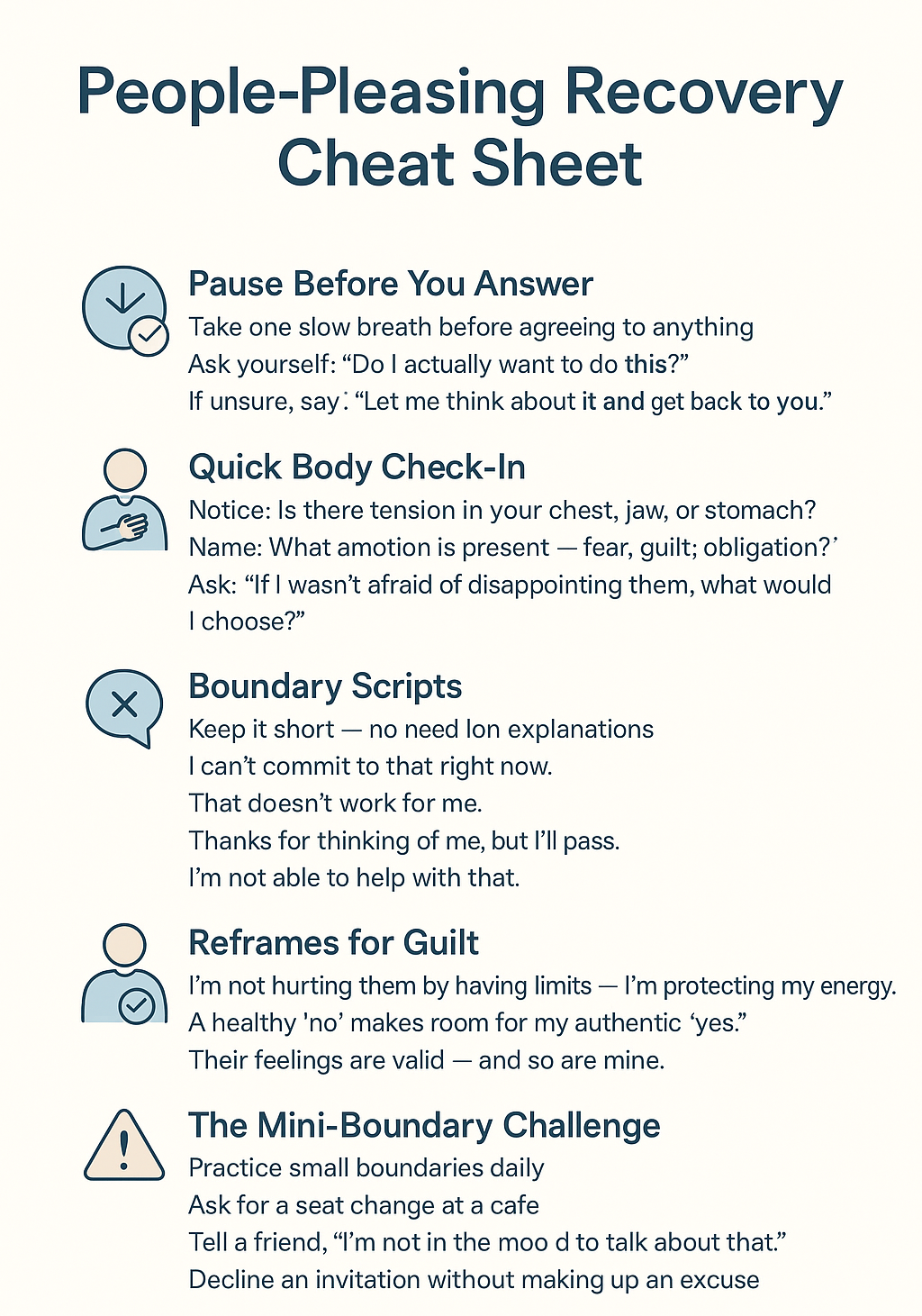Understanding People-Pleasing Tendencies
People-pleasing is more than just being kind or considerate - it’s a pattern of putting others’ needs ahead of your own so often that it leaves you feeling drained, resentful, or disconnected from yourself.
For many, this pattern starts early in life. As children, we may learn that keeping others happy helps us feel safe, accepted, or loved. Over time, this coping strategy can become automatic - saying “yes” before we think, avoiding conflict at all costs, and apologising for having needs or boundaries.
For many people, these habits started long before adulthood - as coping strategies that once made sense but may now feel exhausting or overwhelming.
Here are some common roots:
-
If you grew up in an environment where love or approval felt uncertain, you may have learned to put other people’s needs first. Maybe keeping others happy helped you avoid conflict, or perhaps you took on a caretaker role in your family. Over time, this can teach you that being “good” or helpful is the best way to feel valued.
-
Sometimes, people-pleasing develops as a protective response to stress or trauma. This is often called the “fawn response”—a survival strategy where trying to keep others calm or happy felt like the safest choice.
-
Society often praises selflessness and going the extra mile for others. Depending on your background, you may have been taught—directly or indirectly—that your worth comes from being agreeable, kind, or helpful.
-
When self-esteem feels shaky, it can feel easier to say “yes” than to risk letting someone down. Pleasing others can become a way to avoid criticism or disapproval, even if it means ignoring your own needs.
It’s important to remember: people-pleasing isn’t a flaw. It’s a learned way of coping that once served a purpose, and can be linked to our Core Beliefs, or understanding of how we fit into the world. The good news is that it can be unlearned- with support, self-awareness, and practice in setting healthy boundaries. Therapy can help you build a stronger sense of self-worth and find more balanced, authentic ways of connecting with others.
While people-pleasing can create short-term benefits, it often comes at a high cost:
Loss of self — not knowing what you truly want or need
Emotional exhaustion — feeling responsible for everyone’s feelings
Unbalanced relationships — connection that feels one-sided or conditional; resentment and unmet needs
Therapy can help you:
Recognise when you’re acting from fear rather than choice
Build confidence in expressing your needs
Set boundaries without excessive guilt
Create relationships rooted in mutual respect and authenticity
